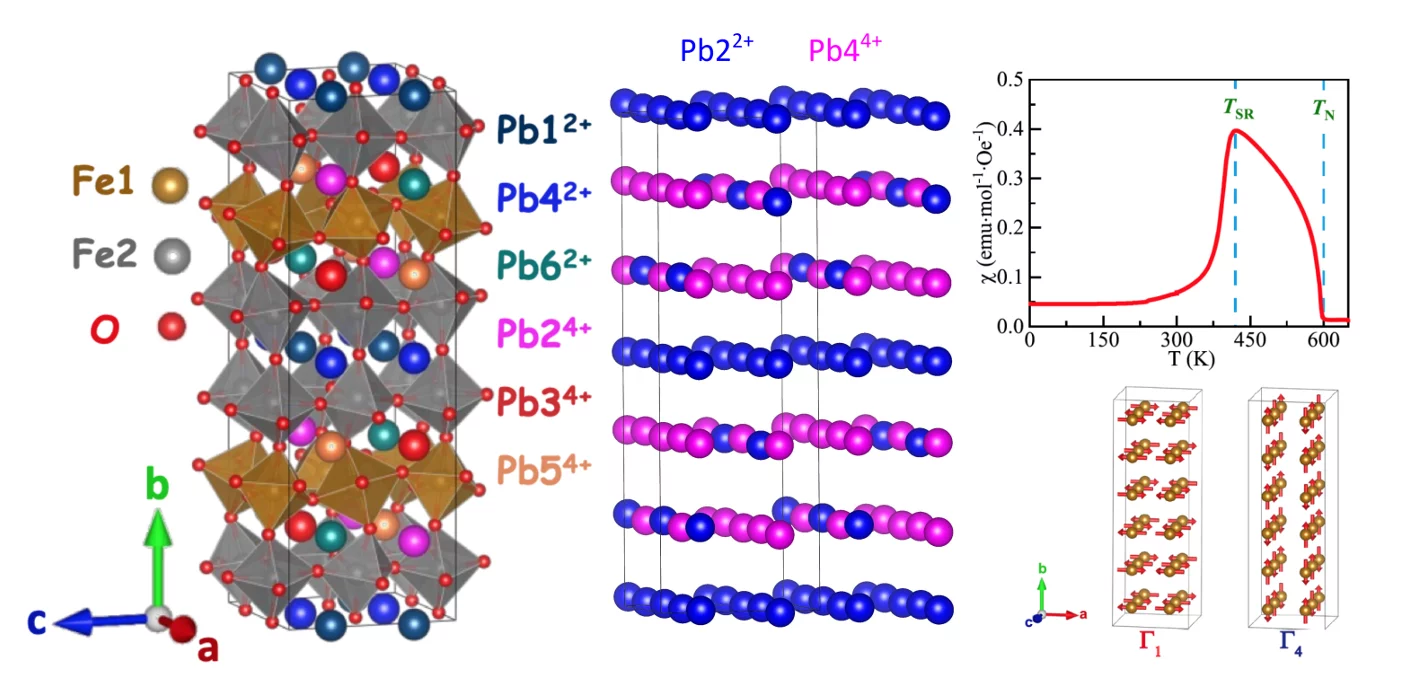The use of high pressure – high temperature synthesis techniques allows for stabilizing new atomic arrangements that were not possible with the common temperature / catalysis approaches for synthesis used before. Therefore, novel materials are emerging, often offering interesting physical properties. We use neutron and synchrotron x-ray diffraction to study their crystal and magnetic structures, and correlate these to the observed physical properties.
In a long-known family of the garnet structures, a new Co3Al2Si3O12 compound has been synthesized under 5.5 GPa and 1250°C. We have studied its magnetic properties by a combination of magnetic susceptibility, neutron powder diffraction, and specific heat measurements [1]. Although the magnetic Co2+ ions form a highly geometrically frustrated hyper-Kagome lattice, we find that Co3Al2Si3O12 exhibits a long-range antiferromagnetic order below TN = 11 K, almost ideally corresponding to the Curie-Weiss temperature, and thus without showing magnetic frustration. From our neutron diffraction experiments, we have determined its rather complex antiferromagnetic structure characterized by the coexistence of collinear and commensurate spiral magnetic ordering.
At yet higher pressure (8 GPa) and 1150°C, a new PbFeO3 compound was synthesized, with an unusual 2ap x 6ap x 2ap orthorhombic perovskite supercell with Cmcm symmetry. By combining the synchrotron x-ray and neutron diffraction [2], we unravel the reason for such an unusual superstructure to the basic cubic perovskite with a lattice parameter ap, which is essentially a rather peculiar charge ordering of the Pb2+ and Pb4+ ions. The compound undergoes an antiferromagnetic order with weak ferromagnetic canting at ~600 K, which then switches to a collinear antiferromagnetic order at 418 K, accompanied also with a spin reorientation.
Publications
-
Cui Q, Huang Q, Alonso JA, Sheptyakov D, De la Cruz CR, Fernández-Díaz MT, et al.
Complex antiferromagnetic order in the garnet Co3Al2Si3O12
Physical Review B. 2020; 101(14): 144424 (9 pp.). https://doi.org/10.1103/PhysRevB.101.144424
DORA PSI -
Ye X, Zhao J, Das H, Sheptyakov D, Yang J, Sakai Y, et al.
Observation of novel charge ordering and spin reorientation in perovskite oxide PbFeO3
Nature Communications. 2021; 12(1): 1917 (11 pp.). https://doi.org/10.1038/s41467-021-22064-9
DORA PSI
Collaboration
- Prof. Jinguang Cheng, Institute of Physics, Chinese Academy of Sciences, Beijing, China
- Prof. Youwen Long, Institute of Physics, Chinese Academy of Sciences, Beijing, China
- Dr. José Antonio Alonso Alonso, Instituto de Ciencia de Materiales de Madrid, Spain

